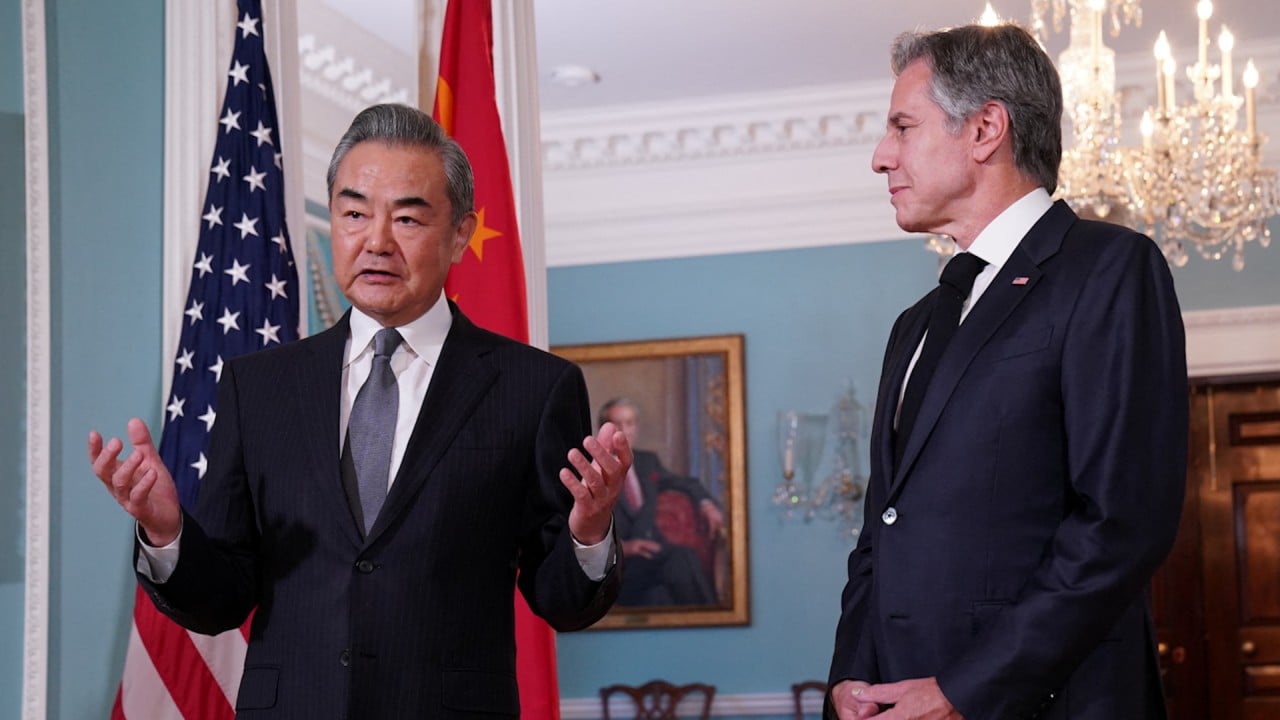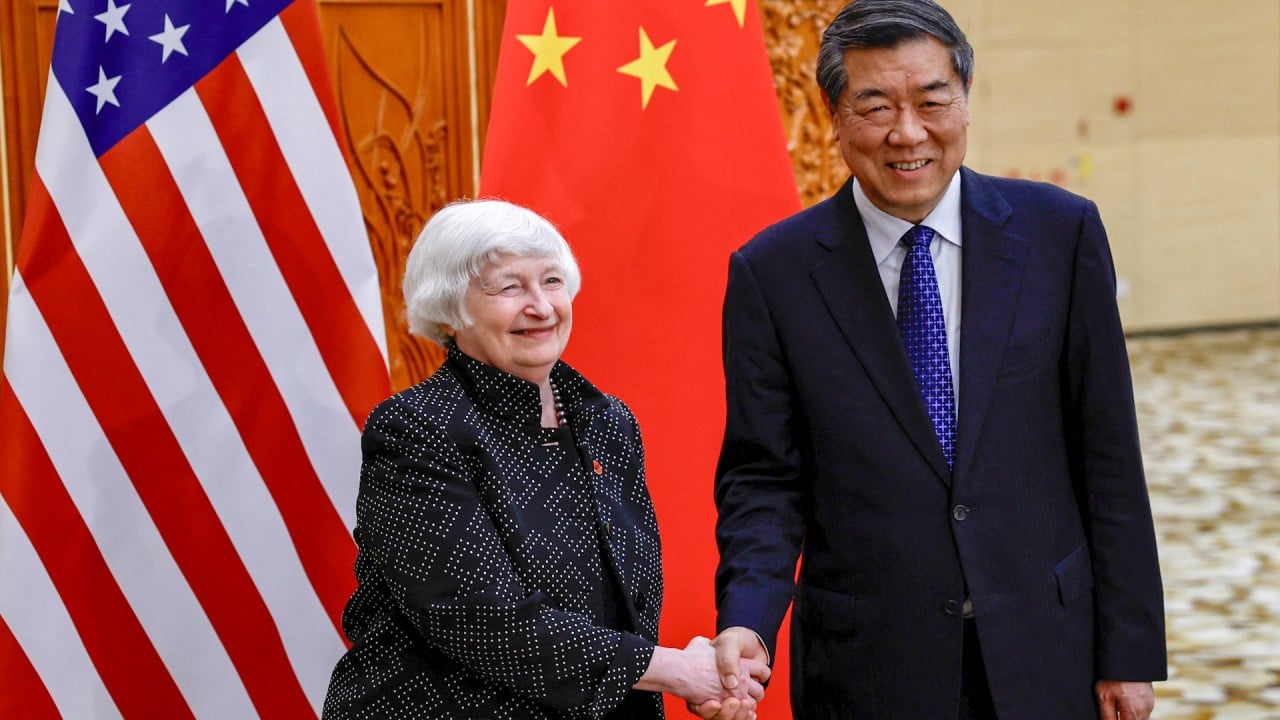
Will the US’ tough tariff talk taint Antony Blinken’s trip to China?
- The US has floated the prospect of higher duties on Chinese steel and aluminium just days before Blinken is expected in Beijing
- Is it just an election-year tactic or part of a ploy to gain China’s support for the US position on Ukraine?
The Chinese foreign ministry has not confirmed the dates for the trip – his second in less than a year – but Politico reported that Blinken would leave for China on Tuesday for a four-day visit.
On Wednesday, the Biden administration called for a tripling of import tariffs on Chinese steel and aluminium, and directed trade representative Katherine Tai to launch an investigation into China’s alleged subsidies in the shipbuilding, logistics and maritime industries.
Tim Summers, an assistant professor at the Chinese University of Hong Kong’s Centre for China Studies, said the US announcements pointed to a “more confrontational” approach towards China.
As a result, Washington would find it harder to gain Beijing’s help with issues such as the crises in Ukraine and the Middle East, he said.
“[The] latest announcements suggest that the US administration will bow to pressure to shift to a more confrontational stance,” Summers said, adding that it was “unlikely to ease” with US presidential elections looming.
US lawmakers eye ‘full sanctions’ for Chinese military firms helping Russia
Wang Yiwei, a professor of international relations at Renmin University, said the tariff talk was part of Washington’s “negotiation strategy” and a “big stick” that Blinken could use in his discussions with Chinese officials.
Blinken is expected to raise US concerns that China was helping Russia to build up its defence industrial base. Beijing has denied aiding Russia in the war, but it has also refused to criticise Moscow’s actions.
Wang said Blinken could present China with two options: to either face the possibility of higher tariffs or to concede its position on the Ukraine war. “This is a negotiation tactic,” he said.
Josef Gregory Mahoney, a professor of politics and international relations at East China Normal University, said the potential tripling of tariffs and the trade investigation would “affect but not derail” Blinken’s visit.
“Certainly it will be a talking point when he comes,” Mahoney said, adding that Blinken would also focus on other geopolitical issues like Taiwan and the South China Sea.
Mahoney said the tariff announcement could prompt Beijing to register “strong disappointment” with Blinken’s visit.
That is despite signs of improvement in the China-US relationship following the meeting between Biden and Chinese President Xi Jinping in November.
The two leaders also spoke on the phone this month.
Wang said Washington’s recent rhetoric – and China policy – should be seen against the backdrop of November’s elections and efforts by politicians to appease voters.
Biden is facing a particularly tough re-election battle and is trying to avoid looking weak on China or getting outflanked on trade policy by his presumed opponent, Donald Trump, the former Republican president who has campaigned on protectionism and a pledge to impose a 60 per cent tax on imported Chinese goods.
“[The US] always plays these cards against China. This makes China very disappointed,” Wang said. “US-China relations are often sacrificed.”
Biden and US trade office target China’s steel, maritime and logistics sectors
But other analysts were more optimistic about Blinken’s visit. Chong Ja Ian, professor of political science at the National University of Singapore, said both sides “presumably wish to continue engaging despite the [tariff] announcement” given that the trip had not been called off.
Chong said negotiations and diplomacy could involve “a bit of pressure and friction”. “In fact, differences may create more demand for dialogue,” he said.
“That they are engaging is important. That demonstrates a willingness to discuss matters, including differences.”
Pang Zhongying, a chair professor of international political economy at Sichuan University in Chengdu, said the US trade representative’s new investigation targeting China’s steel and logistics sectors may have little effect on Blinken’s trip.
“The economic arm of the US cannot simply be linked to the foreign service. Even though the State Department has its economic function, this is not Blinken’s current key responsibility,” Pang said, describing such a connection as a “politicisation”.
“Such a [tariff] policy might have nearly been done before Yellen’s trip. The secretary might join the discussion after her research in China,” he added.
“The key conversation will still be geopolitical tensions, especially the two wars [in Ukraine and Gaza].”




